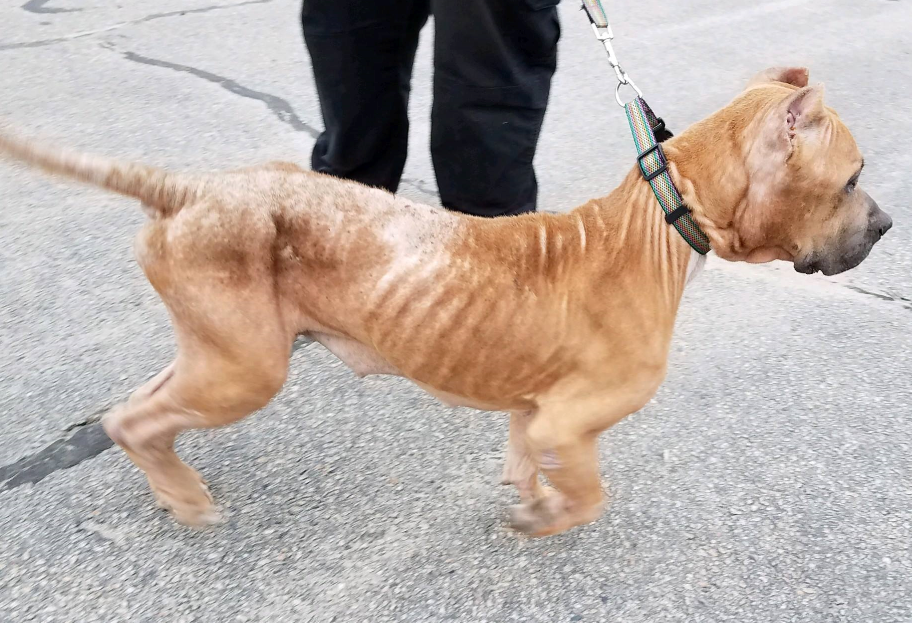latest
Possession ban bill pitched to prevent repeat animal abuse in Massachusetts

By Chris Van Buskirk
State House News Service
MAY 19, 2021…..A person convicted of animal abuse could not own an animal or work in a position where animals are present for up to 15 years based on the number of offenses, under a bill advocates pitched Wednesday as a way to protect the safety of animals and prevent abuse.
The legislation, which differs slightly between House and Senate versions (H 1824 / S 1111), was filed by Rep. Tram Nguyen and Sen. Michael Moore. At least 38 other states and Washington D.C. already have some form of animal possession ban statutes in place and supporters of the measure urged lawmakers to align state laws with what they say is a national trend.
“Possession bans are key to protecting animal victims and potential future animal victims because they’re one of the most effective ways to ensure that a person convicted of animal cruelty does not reoffend,” Nguyen said at a Judiciary Committee Hearing. “I want to emphasize that this legislation would protect potential future animal victims without further incarceration. It simply limits a convicted animal abuser’s access to animals.”
The House and Senate versions of animal possession bans largely do the same thing: An individual convicted of dogfighting, mutilation, torture, or other animal abuse cannot own, possess, adopt, reside with, or foster an animal, or engage in a paid or unpaid occupation at any establishment where animals are present.
The House version sets the ban length at not less than five years after the person’s release from custody for a first offense and not less than 15 years after the release from a second or subsequent offense. The Senate version places the minimum ban length at five years and both proposals include a fine of up to $1,000 for each unlawfully held animal.
“These timelines reflect the serious nature of the crimes that would trigger a ban while also recognizing the potential for offenders to make meaningful strides towards change after their conviction,” Moore said at the hearing.
State law prohibits individuals convicted of animal cruelty from working with animals and only allows courts to ban possession of, or access to animals after an animal sexual abuse conviction, according to the Animal Defense Legal Fund. Nguyen said the bipartisan possession ban bill “would extend existing preventative measures to place reasonable restrictions on those convicted of serious animal cruelty crimes.”
Prosecutors and judges have the option to include possession bans in probationary conditions and Nguyen said the legislation aims to standardize the process of post-conviction animal possession bans “so that there’s no disparity depending on which court you go to.”
Laura Hagen, Massachusetts state director for the Humane Society of the United States, said passing or upgrading possession ban laws has been a nationwide trend. Between 2018 and 2019, 12 states created or strengthened their existing statues and last year, California, Mississippi, Tennessee, and Washington expanded their existing possession ban laws.
“While these bills do not create any new crimes in Massachusetts, they do update our existing law and follow a nationwide trend that recognizes that prohibiting possession of animals is a preventative measure, and it places reasonable restrictions on those convicted of the most egregious animal cruelty crimes,” Hagen said.
Rep. Brad Hill also proposed a trio of bills (,a href=’https://malegislature.gov/Bills/192/H1651’>H 1651 / H 1652 / H 1656) that would also ban convicted animal abusers from receiving, purchasing, adopting, or sheltering animals following their conviction. It also includes language preventing animal breeders, shelters, or stores from knowingly offering, selling, delivering, or providing animals to people convicted of animal abuse crimes.
One of his bills (H 1651) sets a fine of not less than $1,000 and imprisonment for not more than one year for a person who violates the law the first time and a fine of not less than $5,000 and imprisonment for up to five years for subsequent offenses.
“These bills have been around for a long time and we think maybe now that COVID is over and the state budgets is about to be over, that we can start concentrating back on some legislation that we haven’t been able to address in a while,” the Ipswich Republican said. “I think this is a huge issue, ensuring that these convicted animal abusers do not get near our animals.”
Animal Cruelty Citations
Animal right advocates also pushed legislators to pass legislation (S 1097) expanding civil citation authority for animal control officers and law enforcement personnel in the case of animal abuse.
The state’s animal cruelty law is a felony that carries the possibility of seven years in prison, two and a half years in a house of correction, or a fine of up to $5,000, said Allison Blanck, director of advocacy at Animal League of Boston.
Blanck said there needs to be a lesser penalty so that law enforcement or animal control officers can intervene earlier when animal abuse or neglect is occurring. She cited a 2016 case in Westport where more than 20 tenants of a property were reportedly chronically neglected animals.
Those tenants and the owner of the Westport farm were eventually indicted on 151 counts of animal cruelty, making it the largest investigation of its kind in New England, according to the attorney general’s office.
“Hundreds of animals on this farm were kept in deplorable and dangerous conditions, with inadequate food, water, or shelter, many of them suffering from severe health ailments that required them to be euthanized,” Attorney General Maura Healey said at the time.
Blanck argued that had there been the ability to issue civil citations, law enforcement or animal control officers could have intervened earlier.
“In the case of many of these animals, there was no ability of animal control officers or law enforcement to intervene until the situation became dire,” she said.
Under the legislation, responding officers could issue citations with fines of up to $50 for the first offense, not more than $200 for the second offense, and up to $500 for the third and subsequent offenses. After the third violation, the animal could be subject to impoundment at a local shelter.
Civil citations already exist for dogs, but advocates say state law needs to expand to include other animals.
“As somebody that goes out in the field daily, it’s only a small percentage of the situations [involving] dogs,” said Hilary Cohen, a Norfolk animal control officer for over 25 years. “We would love to be able to correct the behavior of the owner prior to felony charges when appropriate. I know that the law has worked for dogs in the past … and it has helped clear up situations that may have ended up in court. We would like to be able to solve that ahead of time.”





You must be logged in to post a comment Login